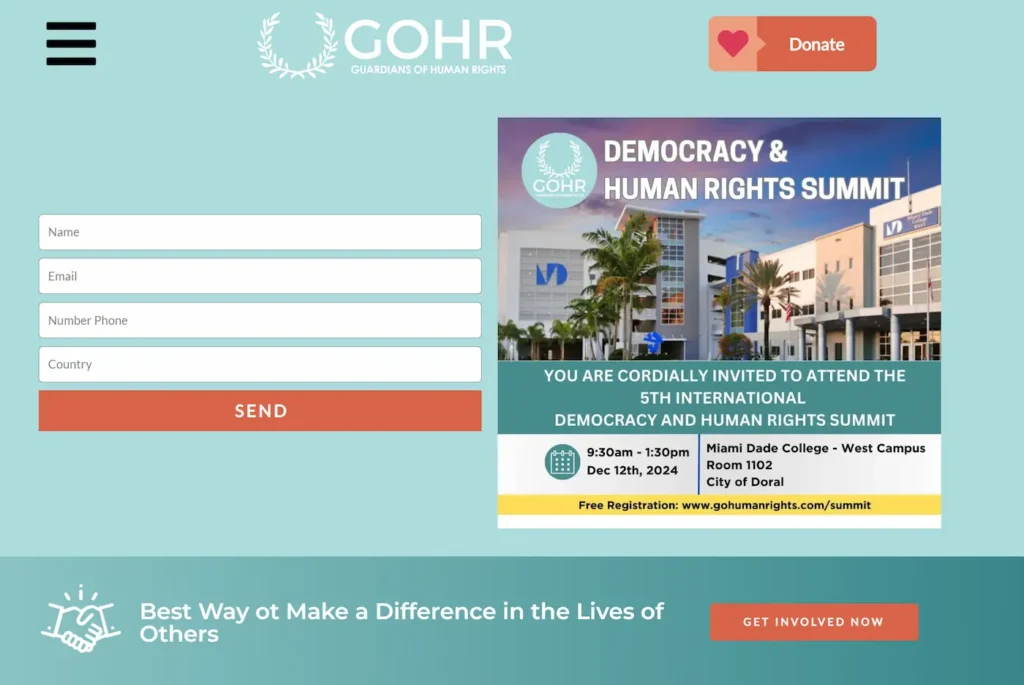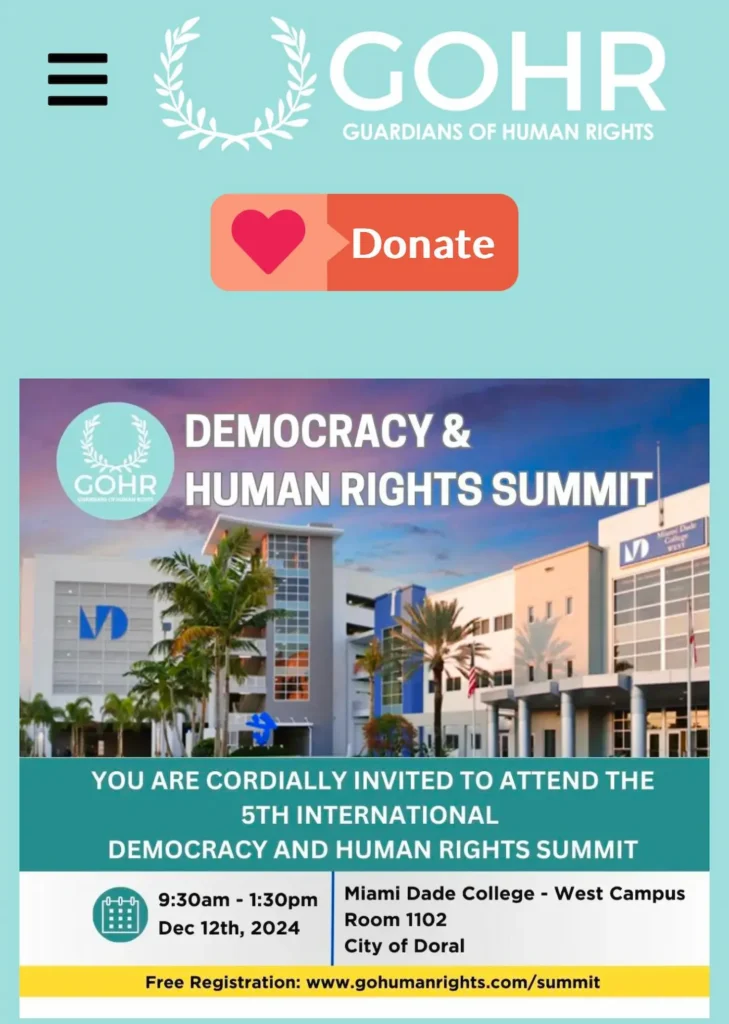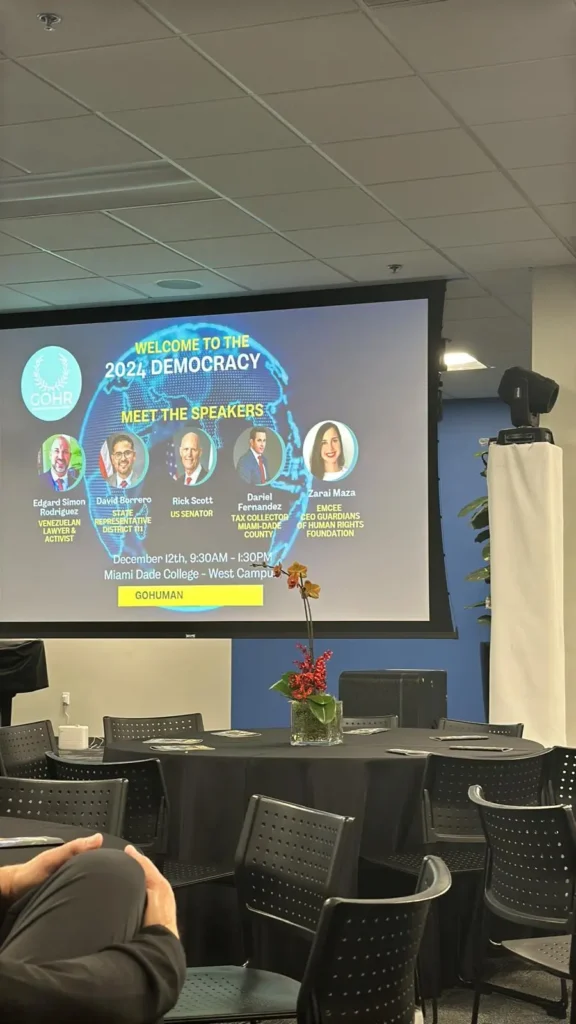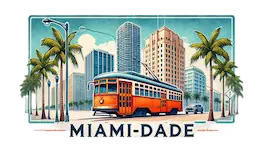|
Getting your Trinity Audio player ready... |
Tabla de Contenido/ Table of Contents
- 1 Increase in Violence and STD Incidence in Miami-Dade: A Challenge for Public Health and Social Justice
- 1.1 Violence and Its Many Faces
- 1.2 The Role of Local Government and Institutions
- 1.3 Impact on Public Health and the Social Fabric
- 1.4 The Role of Survivors Pathway and Interagency Collaboration
- 1.5 Need for Reflection and Collective Action
- 1.6 Various law enforcement operations aimed at combating prostitution and human trafficking
Increase in Violence and STD Incidence in Miami-Dade: A Challenge for Public Health and Social Justice
Today, December 13, 2024, at the Miami Dade College West Campus in Doral, the 2024 Human Rights Convention honored the defense of freedom and equality for all.

In recent years, Miami-Dade County has experienced a sustained increase in violence and health issues, with a higher incidence of sexually transmitted diseases (STDs). This complex situation not only affects the most vulnerable communities but also tests the responsiveness of authorities, nonprofit organizations, civil society, and various levels of local government.
Within this context, clinical psychologist, public health expert, and founder of Survivors Pathway, Francesco Duberli, emphasized at the 2024 Human Rights Convention the need for a comprehensive approach to the interconnections among domestic violence, sexual assault, human trafficking, drug use, and the dehumanization of marginalized groups. His message also underscored the shared responsibility of institutions and local leaders.
Violence and Its Many Faces
Duberli, who has worked with Latinx, immigrant, and LGBTQI+ communities, noted that many cases of violence are intrinsically linked to a lack of resources, opportunities, and access to preventive and mental health services. Latina immigrant women and LGBTQI+ individuals, for example, often face greater barriers when reporting assaults, seeking psychological support, or receiving adequate healthcare.
This scenario becomes even more complex due to the presence of criminal organizations and gangs involved in human trafficking and the torture of migrants. Such illicit activities generate an atmosphere of fear and foster the spread of STDs by forcing victims into constantly high-risk situations.
The Role of Local Government and Institutions
The current situation demands the active participation of all levels of government and relevant institutions. Miami-Dade Mayor Daniella Levine Cava, county commissioners, the Department of Health, as well as the newly established sheriff’s office within the recently formed County Police Department, bear the responsibility of collaborating to create and implement comprehensive strategies. These strategies must include evidence-based and culturally sensitive public policies focused on prevention, as well as increased resources for mental health services, STD prevention, and victim protection.
Impact on Public Health and the Social Fabric
The rise in STDs—including HIV, syphilis, and gonorrhea—is driven by misinformation, inadequate access to culturally sensitive medical services, and the stigmatization of victims. Dehumanizing others and treating people as mere objects or statistics exacerbates structural inequalities.
On the streets of Miami-Dade, homelessness, drug addiction, and institutional neglect create conditions conducive to the spread of STDs and fuel the cycle of violence. From sexual assaults linked to exploitation to the forced transmission of infections, the consequences for both mental and physical health are immeasurable.
The Role of Survivors Pathway and Interagency Collaboration
In the face of these realities, Survivors Pathway, under Duberli’s leadership, plays a central role by providing mental health counseling, guidance, and empowerment to survivors of domestic violence, sexual assault, human trafficking, and other forms of victimization. The organization works closely with the Miami-Dade Police Department, the City of Miami Police Department, the State Attorney’s Office, the Florida Department of Health, and other agencies that support crime victims.
The support of the Florida Attorney General’s Office, the U.S. Department of Justice, the Florida Department of Health, and coordination with other local actors strengthens a multidisciplinary approach. Psychiatrists, clinical psychologists, mental health counselors, social workers, and public health specialists operate with culturally sensitive, victim-centered methods.

Need for Reflection and Collective Action
The increase in violence and STD incidence in Miami-Dade County demands collective reflection and a decisive response. Duberli stresses the importance of recognizing one another’s humanity and rejecting indifference. In his view, social awareness is essential: another’s suffering inevitably affects the entire community.
Intervention cannot be limited to law enforcement alone. It is vital for local leaders—from the mayor and commissioners to health authorities and the new sheriff—to adopt strategies encompassing prevention, education, comprehensive healthcare access, and a thorough review of public policies. Only then can this spiral of violence be halted, living conditions improved, and access to mental health services, STD prevention, and comprehensive victim care ensured.
Ultimately, the message presented on December 13, at the Miami Dade College West Campus during the 2024 Human Rights Convention, underscores that the fight against violence, inequality, and dehumanization requires a shared commitment from all stakeholders. It is not only about assisting victims, but also about transforming the environment that allows these injustices to flourish. With collaboration among government authorities, health institutions, law enforcement, and civil society, Miami-Dade can successfully face this complex challenge and move toward a more just, inclusive, and secure society.

Various law enforcement operations aimed at combating prostitution and human trafficking
Over the last few years, Miami-Dade County has been the scene of various law enforcement operations aimed at combating prostitution and human trafficking. Below are some of the most notable cases:
Arrests in a prostitution and human trafficking investigation (July 2024):
In July 2024, authorities arrested three individuals: Omar Jaimes (43), Elibeth Tovar (41), and Yasid Paul Ortiz (52). They face charges of money laundering, organized crime, and prostitution. Tovar, identified as the operation’s leader, was also charged with human trafficking. The investigation revealed that they operated brothels in Miami-Dade, involving human trafficking activities and money laundering.
Second arrest for sex trafficking (July 2024):
In July 2024, Milagros Lisa Colón, 40, a resident of Georgia, was arrested on charges of human trafficking and prostitution in Miami-Dade. This arrest followed the detention of Juan Montalvo, 45, in April of the same year. Both are accused of coercing a woman to engage in commercial sexual activities, restricting her freedom, and profiting financially from her actions.
Arrest of three Cuban women for alleged prostitution (April 2023):
In April 2023, three Cuban women — Yuneidis Quintero Ochoa (25), Lorena Cárdenas (25), and Sofía Lizana Rojas (20) — were arrested during an undercover operation in Miami-Dade. Authorities accused them of offering sexual services in exchange for money at a local hotel. Following their arrest, each was granted bail set at $500.
The hell hidden by the Alexander brothers, famous real estate agents
The brothers Tal, Oren, and Alon Alexander, renowned luxury real estate agents in Miami and New York, were arrested in Miami on charges of sex trafficking conspiracy. For at least a decade, they allegedly abused and raped dozens of women, both individually and in groups, using force, fraud, and coercion. The investigation, led by the FBI, the Southern District of New York’s Attorney’s Office, and the Miami Beach Police Department, also seeks their relative Ohad Fisherman, who is currently a fugitive. Victims were lured to events, parties, and trips organized by the brothers, or contacted via dating apps and nightlife venues. While the attorneys for Tal and Oren Alexander have denied the charges, authorities commend the victims’ courage in speaking out and emphasize that this kind of predatory behavior will not be tolerated.
Want more post like this?
Head over to our homepage for the latest updates from South Florida and beyond:








